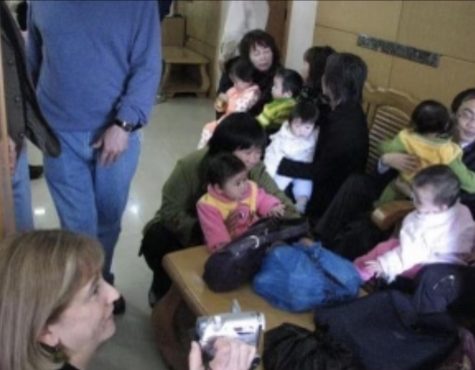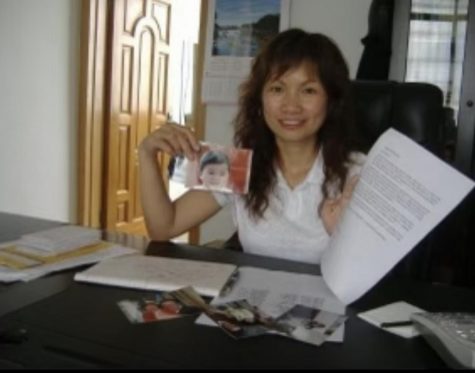One Child: The History and Effects of China’s One Child Policy

China’s one child policy has affected many different lives in many different ways; parents were separated from their children, children were sent to crowded orphanages to be adopted, and so many more people dedicated their lives to protect others from the one child policy. It is estimated that around 150,000 children were given up from 1979-2015 most of them being girls, myself being one of them.
In 1976 Chinese leader Mao Zedong died and his death set in place a new ruler, Deng Xiaoping who will change the Chinese population for generations. Zedong had a campaign that encouraged family planning and the use of birth control to help curve China’s growing population. One thing that set off the one child policy was the world’s focus on it’s growing population rate. Xiaoping responded with overpopulation and started child bearing limits. In 1978 the government began encouraging families to only have one to two children. They offered birth control to help and even incentivized mothers to only have one child at the promise of longer maternity leave.
By 1979 many provinces of China had already adopted a form of the one child policy and in 1980 China standardized the one child policy. There were some exceptions to the one child policy; parents whose first born had a deformity were allowed to have a second child, many farming families had less restrictions on the one child policy, and parents who are just children themselves were allowed to have a second child. The policy was more enforced in urban and city communities. Typically families were forced to pay a high fine to keep a second child. In the Early 80’s many women were forced to have abortions and sterilizations as an extreme way to curve the population. These drastic policies had consequences that will last for generations.
One of the largest and most known consequences of the one child policy was the decrease in the female population. The reasoning behind this gender difference all comes down to the cultural favoritism of boys. Boys would be the ones to keep the family name, inherit farm land, and take care of their elders, because of all these benefits they were more useful to families than girls were. Many went to far lengths to not have girls, many women had abortions after finding out they were pregnant with a girl or they would kill the child after birth now knowing it was a girl. I will state again that many families were forced to do this and it did not only happen to female children. The Chinese government would have fined them for having more than one child. The fine would usually be six to seven years salary and many could not afford to pay the price. It is also known that many would keep children and not document them, these children now face difficulties in obtaining an education or a job. The estimate of undocumented children ranges form a couple hundred thousand to several million children.
Many things lead to the downfall of Chinese adoption especially from its highest popularity in the early 2000s. Chinese adoption sank in 2005 after it was reported that many children were trafficked for international Chinese adoption. This marked the popularity peak of Chinese adoption in the United States. Many believed that China did not want their children, in preparation of hosting the upcoming 2008 Olympics, China was ready to change its public image. In December of 2006 China put an age ban on adoption, now no one over the age of fifty could adopt, this targeted older couples who found Chinese adoption to be a good way to form a family. This age requirement eventually got smaller, and around this time my parents were looking to adopt again but aged out before doing so.
China’s population now continues to drop below what was initially intended. Ever since 1980 China’s population has dropped a great deal and will continue to drop. Due to the drop, China finally ended the one child policy in 2015 and allowed families to have two children without being fined. They also are trying to make incentives for people to have more children, however it is not working. Many couples that are now having children grew up under the one child policy and find having only one child a great benefit. Recently in August of 2021 China raised the child policy from two children to three children to combat this thinking. They also provided more benefits like free child care to try as a way to quench the fear that is brought about having a second child.
Many people are involved in the adoption process of a child; nannies, birth parents, adoptee parents, friends, neighbors, they all came to protect these children. One resource I found extremely helpful in understanding people’s stories was the documentary “Found” on Netflix. If you want to know more about these people’s experiences and stories of sacrifice I do recommend watching it. In it you see many stories including nannies that had rooms filled with abandoned children that they had to take care of. Women that were stripped of their children right after birth while a husband or trusted neighbor would put the child in a busy place, in hopes of being found. Girls like me that live with the struggle not knowing where and who we came from. Adoptive parents that have concerns about providing a good life for their child. There are so many perspectives and rather heartbreaking stories around China’s one child policy. Many people have made impossible sacrifices, but these sacrifices were made for one reason, love.

Resources
https://www.nytimes.com/2006/12/20/us/20adopt.html
http://poundpuplegacy.org/files/MeierZhang.pdf
https://www.history.com/this-day-in-history/china-ends-one-child-policy
https://time.com/4092689/china-one-child-policy-history/
https://www.britannica.com/topic/one-child-policy/Consequences-of-Chinas-one-child-policy

Grace is a senior at Bishop Feehan High School and this is her fourth and final year writing for the ‘Rock Report. She takes part in many activities...























Mary Beth O'Callaghan • Jan 5, 2022 at 6:32 pm
What a tremendous story, Grace! I wanted to read it to learn more about the overpopulation issues in China, but I was immediately drawn in by your personal account. I wish you the best, and thank you for sharing this wonderful piece.
adviser • Jan 6, 2022 at 8:59 am
Dear Ms. O’Callahan,
Thank you so much for the wonderful feedback Ms. O’Callaghan. We had a newspaper staff meeting this morning and Grace was so pleased that you enjoyed her article. She is such a talented and creative student and it is truly great for the students to hear positive feedback from our readers.
Sincerely,
Laura Doliber
Faculty moderator for the ‘Rock Report